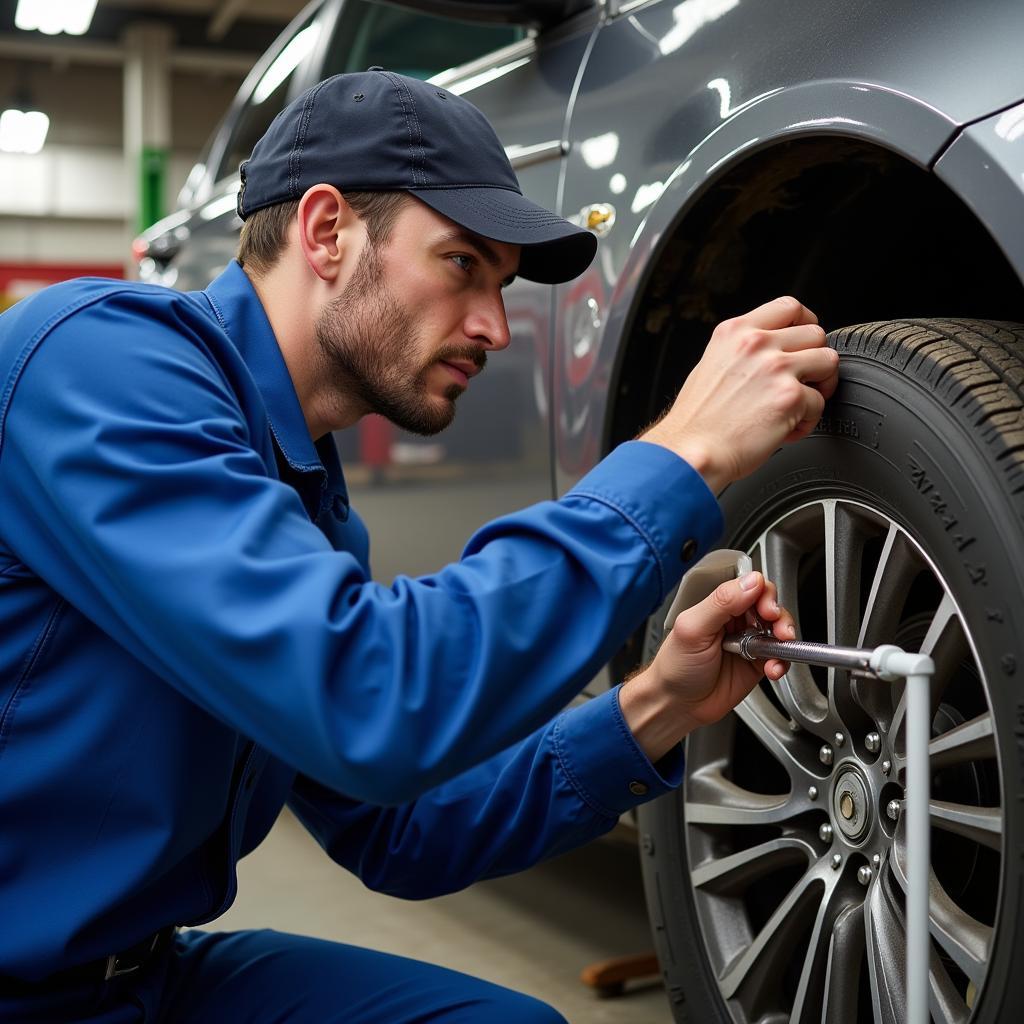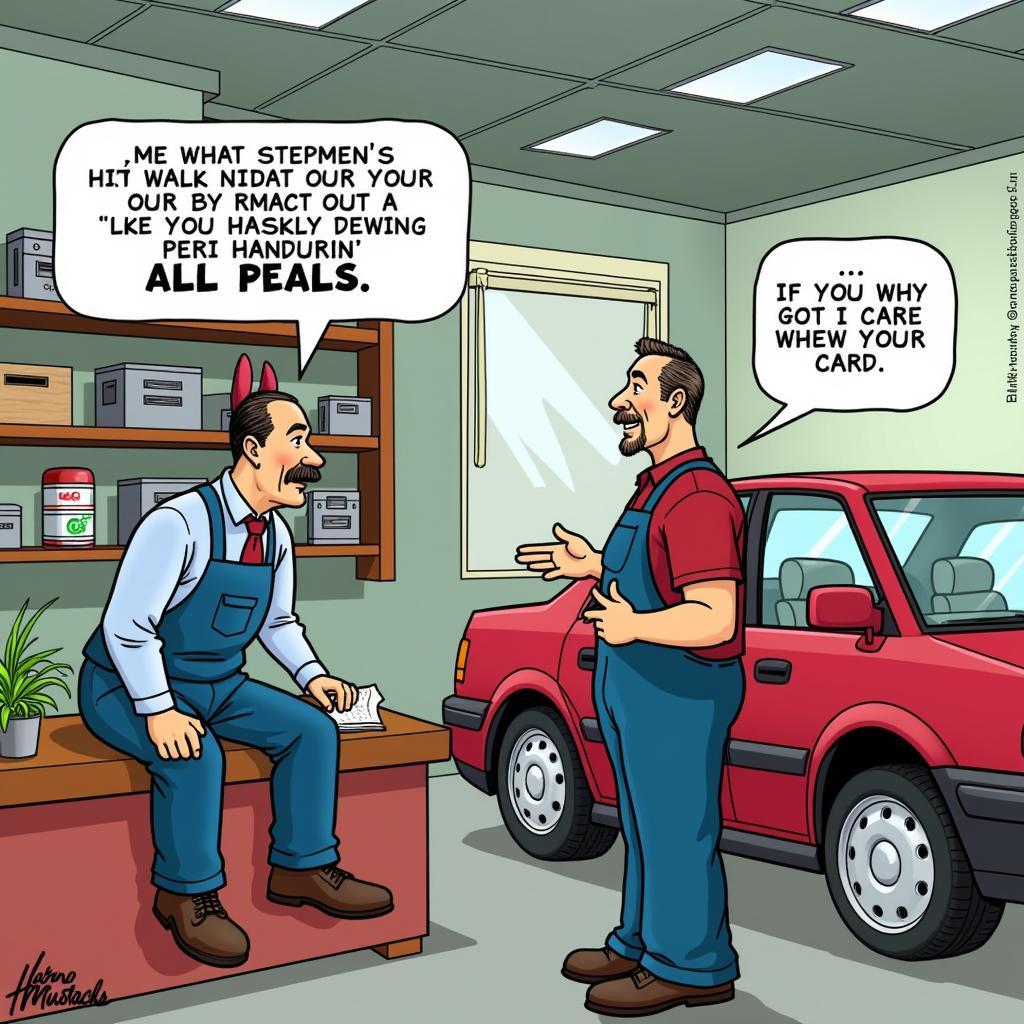If you’re experiencing car overheating issues in Orange Park, Florida, you’re not alone. The Sunshine State’s heat can be brutal on vehicles, often leading to “car run hot” problems. This comprehensive guide will delve into the common causes, diagnostic procedures, and solutions for overheating cars, providing you with the knowledge to tackle this issue head-on.
Understanding Why Your Car Overheats
Before we dive into diagnostics, it’s crucial to understand why cars overheat. Your vehicle’s cooling system is designed to maintain a stable operating temperature. When a component malfunctions, it disrupts this balance, causing the engine to overheat.
Common Culprits Behind Car Overheating
Several factors can contribute to your car running hot:
- Low Coolant Level: Coolant absorbs excess heat from the engine. A leak or insufficient coolant level can lead to overheating.
- Faulty Thermostat: The thermostat regulates coolant flow. A stuck-closed thermostat restricts coolant circulation, causing the engine to overheat.
- Radiator Problems: The radiator dissipates heat from the coolant. Clogged radiator fins, leaks, or a failing radiator fan can hinder heat dissipation.
- Water Pump Failure: The water pump circulates coolant throughout the system. A malfunctioning water pump can’t effectively circulate coolant, leading to overheating.
- Head Gasket Issues: A blown head gasket can allow coolant to leak into the combustion chamber or engine oil, causing overheating and other severe engine problems.
Diagnosing Car Overheating: A Step-by-Step Guide
Accurately diagnosing the root cause of your car overheating is crucial for effective repair. Here’s a step-by-step guide:
- Check Warning Lights and Gauges: If your temperature gauge creeps into the red zone or the “Check Engine” light illuminates, immediately pull over and turn off your engine.
- Inspect Coolant Level (When Cold): Never open the radiator cap when the engine is hot! Let the engine cool down completely before checking the coolant level. If it’s low, add a 50/50 mix of coolant and distilled water.
- Look for Leaks: Inspect the radiator, hoses, and water pump for any signs of leaks, such as coolant puddles under the car or wet spots on engine components.
- Assess Radiator Fan Operation: With the engine running, check if the radiator fan is spinning. If not, the fan motor, relay, or sensor might be faulty.
- Consider Professional Diagnostics: If visual inspections don’t reveal the issue, it’s best to consult a qualified mechanic. They have the tools and expertise to diagnose complex overheating problems, such as a blown head gasket.
Addressing Car Overheating: Solutions and Prevention
Once you’ve diagnosed the cause of your overheating car, it’s time to address it. Here are common solutions:
- Coolant Top-up/Flush: If the coolant level is low, topping it up might suffice. However, if the coolant is old, contaminated, or discolored, a complete coolant flush is recommended.
- Thermostat Replacement: A faulty thermostat usually requires replacement. This is a relatively inexpensive repair that can prevent further overheating issues.
- Radiator Repair/Replacement: Depending on the severity, radiator problems might require repairs (patching leaks, cleaning fins) or complete replacement.
- Water Pump Replacement: A failing water pump needs immediate replacement to restore proper coolant circulation.
- Head Gasket Repair: A blown head gasket requires significant engine work and is best handled by a professional mechanic.
 Mechanic Inspecting Radiator
Mechanic Inspecting Radiator
Preventing Future Overheating Issues
Prevention is key to avoiding costly car repairs. Here are some proactive measures:
- Regular Maintenance: Adhering to your car’s recommended maintenance schedule, including coolant flushes and inspections, is crucial.
- Inspect Belts and Hoses: Regularly check the condition of your belts and hoses, replacing any cracked, brittle, or worn-out components.
- Address Small Issues Promptly: Don’t ignore warning signs like temperature gauge fluctuations or unusual smells. Addressing minor issues early can prevent them from escalating into major problems.
Expert Insights
“Many car owners underestimate the importance of regular coolant flushes,” says John Smith, a seasoned automotive technician at XYZ Auto Repair in Orange Park. “Over time, coolant loses its effectiveness, leading to corrosion and potential overheating. Regular maintenance can save you a lot of trouble and expense down the road.”
Need Help with Car Overheating in Orange Park, Florida?
Experiencing car overheating problems in Orange Park, Florida? Don’t let the heat get to you! Contact AutoTipPro today for expert diagnosis, repair, and preventative maintenance services.
Call Us: +1 (641) 206-8880
Visit Our Office: 500 N St Mary’s St, San Antonio, TX 78205, United States
We’re your trusted partner in keeping your car cool and running smoothly in the Florida heat.





Leave a Reply